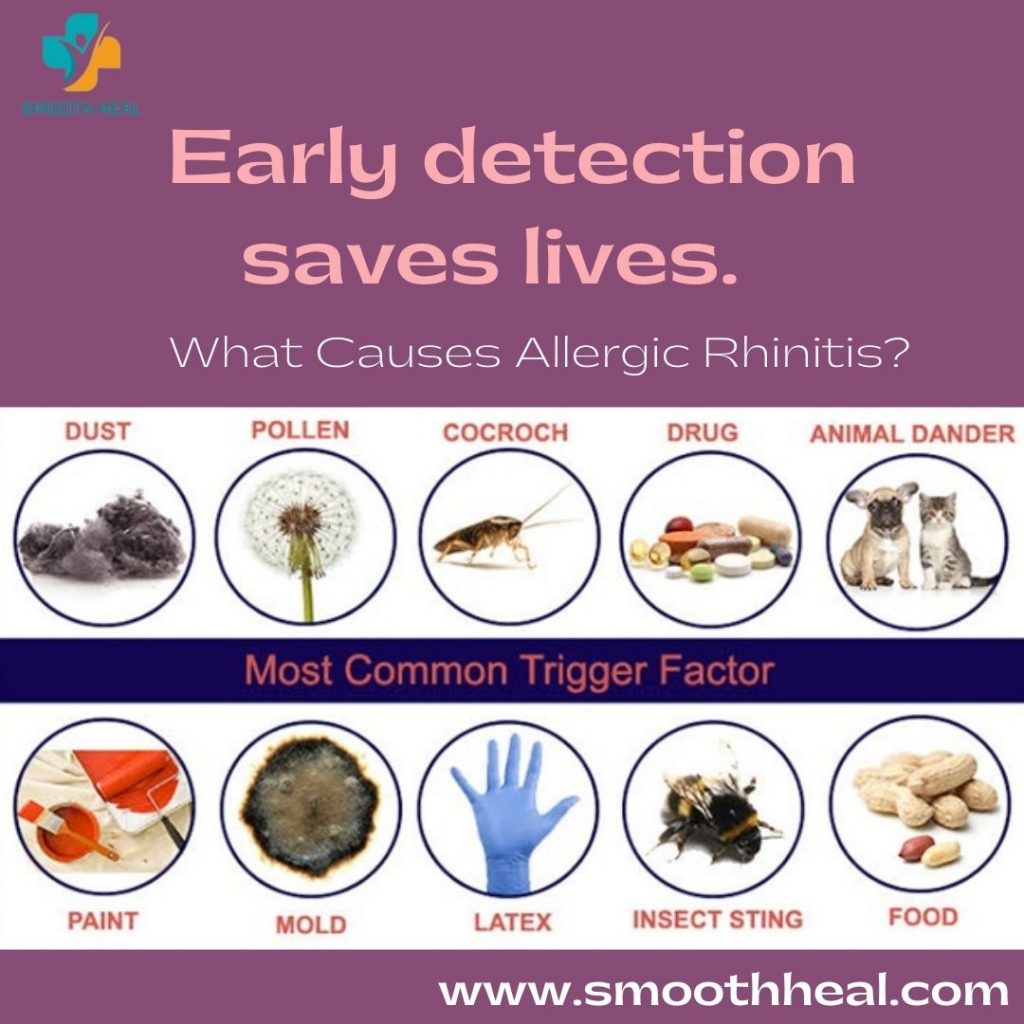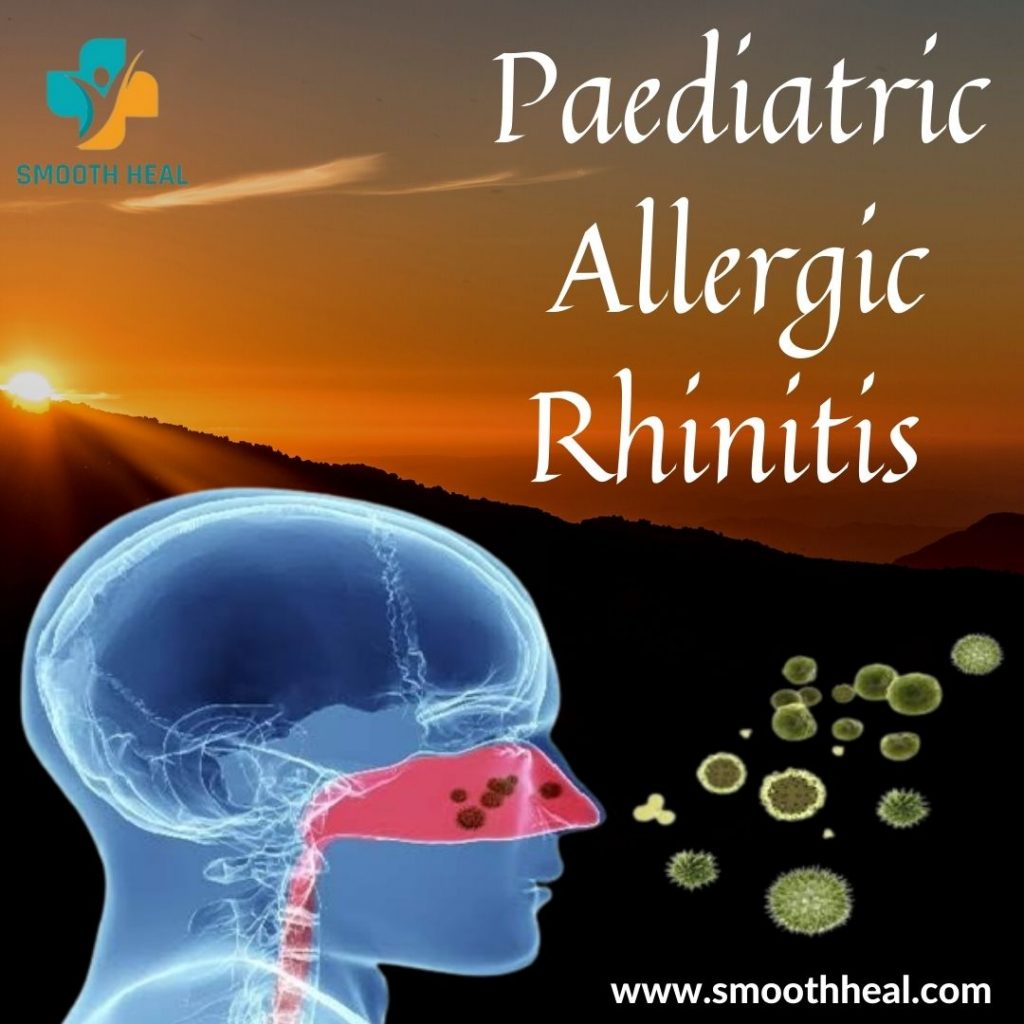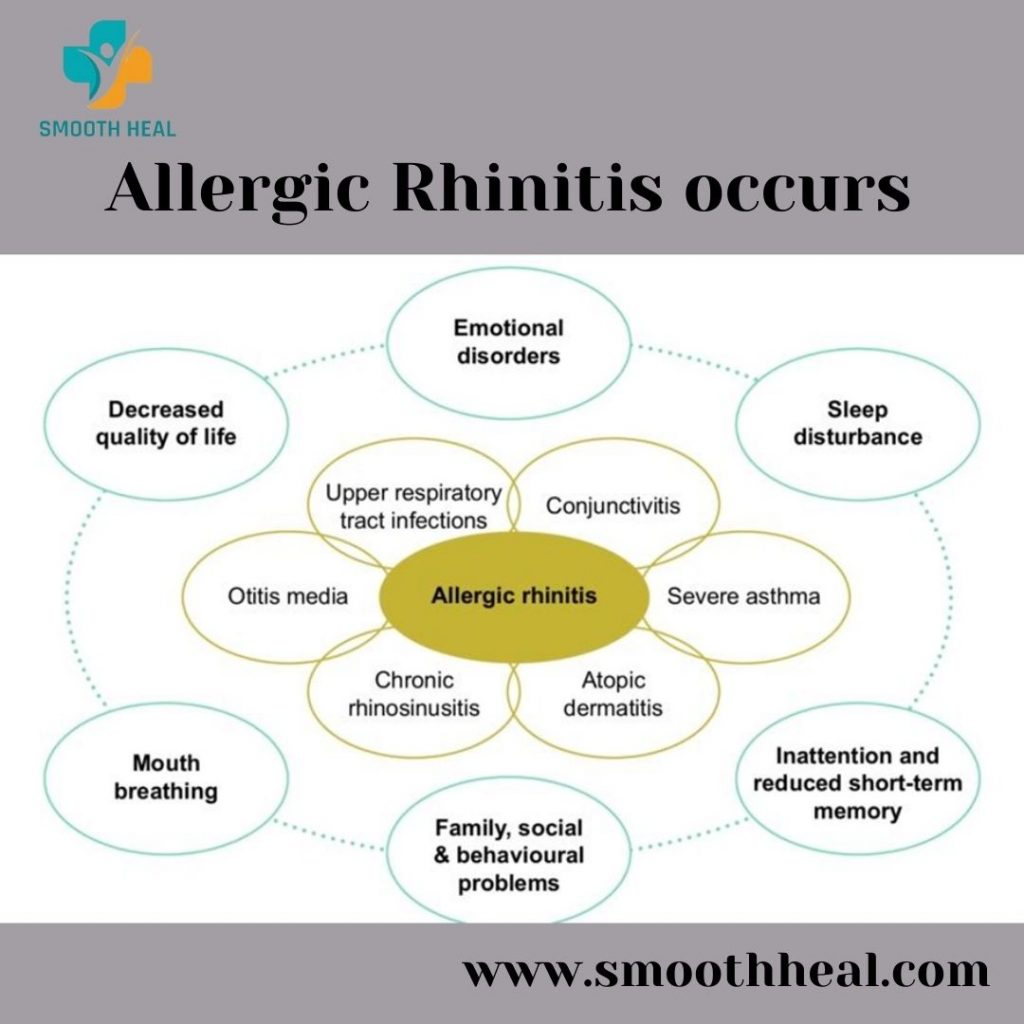Pediatric Allergic Rhinitis
Most of us are familiar with hay fever, which is termed in medical science as Allergic Rhinitis. The name itself implies that it’s a disease associated with allergy. It’s a condition where a person or a child suffers from–
- Sneezing-repeatedly without a break
- Abundant nasal secretion
- Itchy nose
- Watery eyes
- Itchiness in the throat
Allergic Rhinitis or hay fever could be seasonal or year round. Year round attacks are more found in younger children. A family history is usually present.
Pediatric Allergic Rhinitis: What Causes Allergic Rhinitis?
Allergic Rhinitis symptoms could occur throughout the year. Allergens in the outdoors are worse in the spring, summer and early fall. In hot weather, pollen counts are higher. Indoor allergies are worse in winter when people move outside less.
Common sources of Hay fever are:
- Dusts from indoor or outdoor source
- Pollen from flower or trees
- Smokes from cooking, vehicles, cigarette
- Cold Temperature
- Cockroach or Animal Wastes
- Air conditioned Room
- Mould
- Skin, Saliva, fur, urine of pets (animal dander)
- Cold Wind
- Aerosol Sprays
- Food Allergies

Hygiene is a must for the children with allergic rhinitis. Filthy Environment could the make the symptoms worse, specially in children with asthma. Though it is not fully understood but allergic rhinitis and asthma could be related. Experts thinks that with hay fever, the stuffy nose it makes it harder to breathe. As a result, children tend to breathe via mouth which doesn’t make the air humidified , warm or filtered, making the asthma exacerbate often.

What are the symptoms of Allergic Rhinitis?
Some symptoms are discussed below but each child may experience them differently.
- Runny or Stuffed Nose
- Repeated Sneezing without a break
- Watery eyes
- Itchiness in nose, eyes and throat
- Bleeding from nose
- Snoring
- Mouth Breathing
- Poor performance at school
- Allergic salute which is a crease mark over nose due to frequent nose swiping
These symptoms are similar to many other ENT diseases. So make sure that you take your children to a physician and find out the cause.

Pediatric Allergic Rhinitis: What are the future complications in children?
Previously it was discussed in the above sections but children with allergic rhinitis tend to suffer from some serious issues, specially the ones with year round symptoms. Some of the common complications are as follows:
- Repeated ear Infection
- Hearing difficulties
- Chronic Sinusitis
- Hypertrophy of the nasal turbinates
- Pharyngitis or Throat Infection
- Mouth breathing (exclude adenoid)
- Asthma
- Sleep disturbance
- Lose of school days

When sensitization of Allergic Rhinitis occurs?
Allergy could be causally defined as when your body overreacts to specific things that normally do not cause problems for others. These specific things are termed as allergens.
The systemic process by which these allergens make your body sensitive to them is called sensitization
Any type of allergic reactions require certain exposure to allergens. The patient must be exposed to allergens for a period of time to be sensitized.
Allergic sensitization from indoor allergens rarely occur in children younger than 2 years.
Allergic sensitization from outdoor allergens occurs in children usually in between 3 to 5 years and the average age for sensitization is 9 to 10 years.
Sometimes, the sensitization could occur at a later age. Personally, I have seen many of such cases who were above 20 years.
Living with Allergic Rhinitis:
Many families with traditional old belief don’t go to the doctors. Especially when it’s just “some sneezing” and stuffy nose. It can affect your daily life. Nasal symptoms when lying could get worse. Your child will have difficulties to sleep, too frequent headaches and fatigue. It will affect the ability to study and function properly at school. The breathing difficulties will also drain out the energy and your child will get tired often.

How to diagnose Allergic Rhinitis?
Typically your physician will diagnose allergic rhinitis based on your child’s symptoms and examining the Ear Nose Throat.
If needed the physician may want to see the blood IgE Level, CBC, X ray PNS for sinusitis, X ray Nasopharynx for adenoid and also there is a specific test called Skin Prick Test
What are the treatment options of Allergic Rhinitis?
When your children are experiencing the above mentioned symptoms, as a parent you should be alerted.
Later when you visit a physician, make sure to go through a detailed presentation with every smallest bit of information.
Your doctor will prescribe depending on the symptoms. He/she would also exam your child’s nose, ear, mouth and if needed write investigations that are important for the diagnosis and treatment.
The pharmacological approaches includes
- Intra nasal Steroid Spray
- Intr nasal Anti Histamine
- Intra nacal decongestants
- Oral Leukotriene pathway inhibitor
- Oral Antihistamines
Non-pharmacological approaches includes
- Allergic specific immunotherapy
- Nasal Saline Irrigation
- Removal of the trigger
In selected case surgeries might be needed
- Tonsillectomy if associated with chronic tonsillitis
- Adenoidectomy if adenoid is present
- Turbinectomy if turbinates are huge and prominent

How to Prevent Allergic Rhinitis?
As you know that there are no permanent cure for allergic rhinitis (hay fever), prevention is the best way of action.
Some of the key points to prevent allergic rhinitis are stated below :
- Keep the home dry and well ventilated
- Keep the children away from dusty environment
- Keep them safe from smokes and fumes
- Flower Plants should be avoided
- Wearing masks should be practiced at an early age
- Wearing wraparound sunglasses to protect eyes from pollen or any allergens
- Avoiding pets
- Avoiding areas with Mites, Cockroach
- Avoiding animal wastes
- Avoid cold and Air conditioned Rooms
- Maintaining family hygiene
- Regular Check Up and Follow up with a physician

